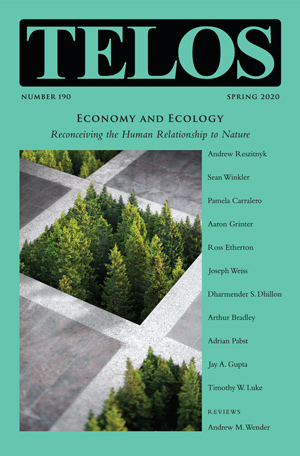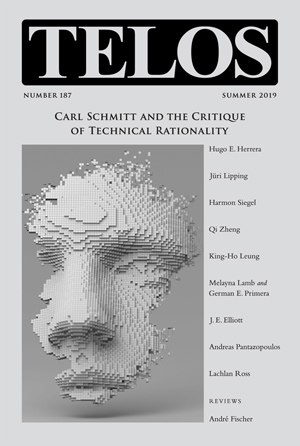By Peter Brandt · Wednesday, April 28, 2021 The following blog post originally appeared at Blog politische Ökonomie. Peter Brandt is commenting on the controversy surrounding an essay by Wolfgang Thierse, translated here. See the related position paper here and a separate article by Brandt here. Translated by Russell A. Berman, with comments here.
During the past few weeks the debate over identity politics and viewpoint diversity in Germany has been unfolding. The starting point was an article in the Frankfurter Allgemeine by Wolfgang Thierse, not known for eccentric positions, concerning the conduct of the debate around the themes of racism, postcolonialism, and gender.
In his opinion piece, Thierse criticizes the claim by sexual and other minorities to define their own collective identity (hence “identity politics”), and what is right and tolerable or intolerable for them, rather than engaging in an open and controversial debate. The accusation that something is hurtful therefore, Thierse argues, often displaces an argumentative response.
Continue reading →
By Position Paper · Wednesday, April 28, 2021 The following position paper circulated in Germany in late March here. It is part of a wider discussion of identity politics, especially the opinion piece by Wolfgang Thierse, translated in TelosScope here. See also the comments by one of the signators, Peter Brandt, here and here, and comments by the translator, Russell A. Berman, here.
We, the undersigned of this position paper, understand ourselves to be critical, progressive, open-minded, and ecologically oriented. We support deep ecological and social changes in our society. However we want to do this without identitarian fundamentalism! With this position paper we want to . . .
Continue reading →
By Russell A. Berman · Tuesday, November 10, 2020 In the wake of recent killings in Paris and Nice, as well as in Vienna, the debate over “Islamism” has regained prominence in Europe, especially in France. Islamism as a political ideology must of course be rigorously distinguished from Islam, the religion. That conceptual distinction ought to be readily understandable and familiar from previous iterations of responses to terrorism. What however appears to be new in the current French discussion is the perceived linkage between Islamism, terrorist violence, and academic post-colonialism, regarded as providing a justification for the violence. That association is being made at high levels in the Macron government, generating considerable controversy. That is the context for the open letter published in Le Monde, translated below. Do academic ideas have consequences in the world?
Continue reading →
By Telos Press · Monday, July 20, 2020 The following interview was conducted by Alexander Wendt on July 5, 2020, and originally appeared in German on Tichys Einblick on July 13, 2020. Translated by Russell A. Berman.
Alexander Wendt: Professor Bolz, the costs of the coronavirus pandemic are still unknown, but they will surely leave deep scars for years to come. Will our society return from post-materialism to a society with hard materialist concerns with numbers and balance sheets?
Norbert Bolz: Even before the coronavirus crisis, I had doubts as to whether the notion of a post-material society made much sense. To my mind, the “post-material” term only makes real sense as a description of digitalization and the rise of information technology. But the superstructure that is usually meant by “post-material” seems to me to be mainly a substitute for religion, and it never had the real significance for society that many ascribe to it.
Continue reading →
By Andrew Reszitnyk · Thursday, May 21, 2020 Andrew Reszitnyk’s “The Descent into Disanthropy: Critical Theory and the Anthropocene” appears in Telos 190 (Spring 2020): Economy and Ecology: Reconceiving the Human Relationship to Nature. Read the full article at the Telos Online website, or purchase a print copy of the issue in our online store. Individual subscriptions to Telos are available in both print and online formats. Ernst Jünger’s Sturm, published in English translation by Telos Press, is also available in our store.
 This essay suggests that the widespread engagement in humanities scholarship with the concept of the Anthropocene—the proposed geologic epoch in which humans figure as a terrestrial force and the planet appears as a human artifact—has given rise to a strain of critical theory that renounces the imperative to engage in politics. I argue that the notion of the Anthropocene has inspired a turn toward what Greg Garrard calls “disanthropy,” the tendency to fantasize about a world in which living human bodies are absent and to render human life into an abstract concept. Through an analysis of the work of Dipesh Chakrabarty and Timothy Morton, I contend that, insofar as they have become disanthropic, many contemporary critical theorists have relinquished the capacity to engage critically with the influential and pernicious politico-economic ideology of neoliberalism. Although many scholars argue that we should view the Anthropocene as a vital provocation that opens up new corridors for environmentalist scholarship, I propose that we remain skeptical about the value of positing the Anthropocene at the center of critical inquiry. I suggest that the growing reputation of the idea of the Anthropocene has caused a significant segment of humanistic scholarship to enter into a political and philosophical détente with neoliberalism, with the effect that critical theory is becoming less and less capable of responding to the questions posed by the world outside the university. This essay suggests that the widespread engagement in humanities scholarship with the concept of the Anthropocene—the proposed geologic epoch in which humans figure as a terrestrial force and the planet appears as a human artifact—has given rise to a strain of critical theory that renounces the imperative to engage in politics. I argue that the notion of the Anthropocene has inspired a turn toward what Greg Garrard calls “disanthropy,” the tendency to fantasize about a world in which living human bodies are absent and to render human life into an abstract concept. Through an analysis of the work of Dipesh Chakrabarty and Timothy Morton, I contend that, insofar as they have become disanthropic, many contemporary critical theorists have relinquished the capacity to engage critically with the influential and pernicious politico-economic ideology of neoliberalism. Although many scholars argue that we should view the Anthropocene as a vital provocation that opens up new corridors for environmentalist scholarship, I propose that we remain skeptical about the value of positing the Anthropocene at the center of critical inquiry. I suggest that the growing reputation of the idea of the Anthropocene has caused a significant segment of humanistic scholarship to enter into a political and philosophical détente with neoliberalism, with the effect that critical theory is becoming less and less capable of responding to the questions posed by the world outside the university.
Continue reading →
By J. E. Elliott · Thursday, August 1, 2019 J. E. Elliott’s “Insourcing Dissent: Brand English in the Entrepreneurial University” appears in Telos 187 (Summer 2019). Read the full article at the Telos Online website, or purchase a print copy of the issue in our online store. Individual subscriptions to Telos are available in both print and online formats.
 This essay addresses the emergence of dissent culture as a hallmark of teaching and research in English studies and the humanities more generally in the time and temper of the commercial-bureaucratic university. I argue that the most convincing explanation for the widespread adoption of a protest ethos in an institution ostensibly opposed to its prescriptions is not a paradigm shift from formalist to political approaches to texts and artifacts, much less principled opposition to late Western capitalism or technological reason, but a reproduction of the routines, scripts, norms, and values of American higher education as an entrepreneurial enterprise. Dissent, in other words, is an organizationally conservative force: it animates disciplinary alternatives to STEM and business curricula while articulating a remedial narrative of inclusiveness (“diversity”) that bears witness to American higher education’s residual commitments to political engagement and democracy building. This insourcing of protest has assured English studies’ viability in the corporate university by reconfiguring the discipline as an academic brand alongside Brand Science and Brand Business in the organizational field of the university. To the extent that the politics of advocating for the disempowered and marginalized is an in-house creation without demonstrable political or policy-related impact, however, dissent culture can also be read as a reflexive (and symptomatic) protest against its own institutional capture. The essay concludes with a discussion of prospective alterations to Brand English in light of recent developments in the digital humanities. This essay addresses the emergence of dissent culture as a hallmark of teaching and research in English studies and the humanities more generally in the time and temper of the commercial-bureaucratic university. I argue that the most convincing explanation for the widespread adoption of a protest ethos in an institution ostensibly opposed to its prescriptions is not a paradigm shift from formalist to political approaches to texts and artifacts, much less principled opposition to late Western capitalism or technological reason, but a reproduction of the routines, scripts, norms, and values of American higher education as an entrepreneurial enterprise. Dissent, in other words, is an organizationally conservative force: it animates disciplinary alternatives to STEM and business curricula while articulating a remedial narrative of inclusiveness (“diversity”) that bears witness to American higher education’s residual commitments to political engagement and democracy building. This insourcing of protest has assured English studies’ viability in the corporate university by reconfiguring the discipline as an academic brand alongside Brand Science and Brand Business in the organizational field of the university. To the extent that the politics of advocating for the disempowered and marginalized is an in-house creation without demonstrable political or policy-related impact, however, dissent culture can also be read as a reflexive (and symptomatic) protest against its own institutional capture. The essay concludes with a discussion of prospective alterations to Brand English in light of recent developments in the digital humanities.
Continue reading →
|
|




